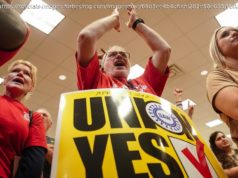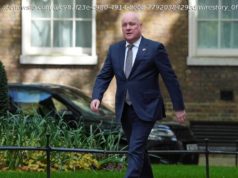The deal would end a class-action suit by shareholders who claimed they were harmed by the bank’s false statements about a scandal over sham accounts.
Wells Fargo’s tab for its sham accounts scandal shot up again on Friday, when the bank agreed to pay $480 million to settle a class-action claim from shareholders who said they were harmed by the bank’s false statements about its misdeeds.
The deal, which still needs approval from a federal court in San Francisco, would compensate investors who bought Wells Fargo stock from February 2014 to September 2016 — the month that regulators and law enforcement officials brought the bank’s illegal actions to light and fined it $185 million .
The bank said it denied the shareholders’ accusations but chose to settle the case to avoid the cost and distraction of fighting the claims.
“Moving to put this case behind us is in the best interest of our team members, customers, investors and other stakeholders,” Timothy J. Sloan, Wells Fargo’s chief executive, said in a written statement.
Union Investment, a European asset management firm that was one of the lawsuit’s lead plaintiffs, called the proposed deal an “important step” for Wells Fargo “towards reckoning with its prior mistakes and focusing on creating value for its investors.”
The federal government revealed in September 2016 that the bank had been opening accounts and new credit cards in its customers’ names without telling them. As many as 3.5 million fraudulent accounts were created.
Investors are poised to collect significantly more from Wells Fargo than its customers are. Wells Fargo has refunded about $12.5 million to customers who said they were harmed and agreed to pay $142 million to settle a class-action lawsuit.
Wells Fargo is still in the cross hairs of regulators and prosectors. The Federal Reserve has forbidden the bank to grow until it fixes its problems, and last month, two federal overseers imposed on it a record $1 billion fine for charging mortgage and auto loan customers millions in fees that regulators said were improper.
The bank also remains under investigation by the Justice Department, the Labor Department, the Securities and Exchange Commission and multiple state attorneys general.






